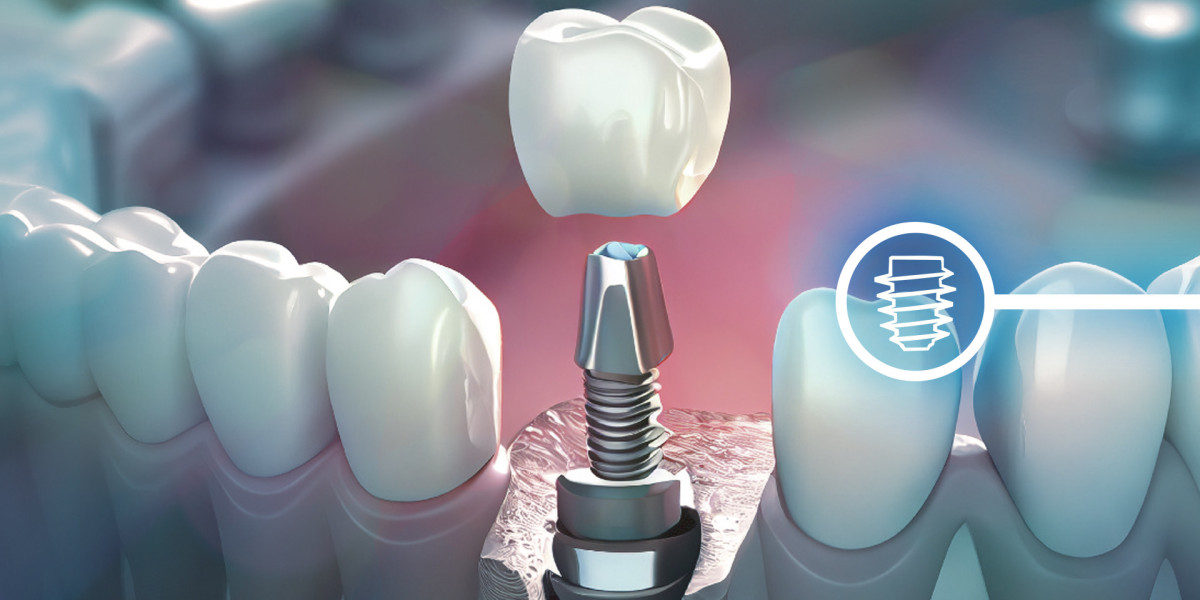Tooth loss can affect not only your appearance but also your confidence, oral health, and quality of life. Thankfully, modern dentistry offers a reliable solution: dental implants. For those considering Dental Implants in Islamabad, it is crucial to understand the detailed process involved in this treatment. Clinics like SKN Cosmetic Clinic are known for providing professional care and advanced techniques, ensuring patients achieve natural-looking and long-lasting results.
What Are Dental Implants?
Dental implants are small titanium or zirconia posts surgically placed into the jawbone to act as artificial tooth roots. Once they fuse with the bone, they provide a strong foundation for crowns, bridges, or dentures. Unlike removable prosthetics, implants feel and function like natural teeth, making them the most effective option for tooth replacement.
Why Understanding the Process Matters
Many patients feel nervous about undergoing implant surgery because they don’t know what to expect. By learning the step-by-step process of dental implants in Islamabad, you can prepare better, manage your expectations, and feel more confident about your treatment.
Step 1: Initial Consultation
The journey begins with a detailed consultation. During this visit, the dentist will:
Review your medical and dental history.
Conduct a thorough oral examination.
Take X-rays or 3D CT scans to assess bone density and gum health.
Discuss your goals, treatment options, and costs.
This step is vital to determine if you are a good candidate for implants. Patients with gum disease, uncontrolled diabetes, or insufficient jawbone may need preliminary treatments before surgery.
Step 2: Treatment Planning
Based on the diagnostic results, your dentist will create a customized treatment plan. This includes:
Number of implants required (single, multiple, or full-mouth).
Type of implants best suited for your case.
Whether bone grafting or sinus lift is necessary.
Estimated duration and stages of treatment.
A well-structured treatment plan ensures accuracy and long-term success.
Step 3: Preparatory Procedures (If Needed)
Not all patients can undergo implant placement immediately. Some may need preparatory treatments such as:
Tooth Extraction – Removal of damaged or decayed teeth before placing implants.
Bone Grafting – Strengthening the jawbone if it lacks sufficient density.
Sinus Lift – Lifting the sinus membrane in the upper jaw to create space for implants.
These procedures may extend the overall treatment timeline but are essential for ensuring implant stability.
Step 4: Implant Placement Surgery
Once your mouth is ready, the dentist proceeds with the implant placement. This is usually done under local anesthesia. The steps include:
The dentist makes a small incision in the gum.
A hole is drilled into the jawbone.
The titanium implant post is inserted into the bone.
The gum tissue is stitched back in place.
This stage usually takes 1–2 hours depending on the number of implants.
Step 5: Healing and Osseointegration
After surgery, the implant needs time to fuse with the jawbone through a process called osseointegration. This stage can take anywhere between 3 to 6 months. During this period:
The bone grows around the implant, securing it firmly.
Patients may be provided with temporary crowns or dentures for aesthetics.
Follow-up visits are scheduled to monitor progress.
Patience during this stage is key to ensuring long-term implant success.
Step 6: Abutment Placement
Once healing is complete, the dentist attaches an abutment to the implant. This small connector links the implant post with the dental crown. Abutment placement is a minor procedure performed under local anesthesia and requires minimal recovery time.
Step 7: Crown, Bridge, or Denture Placement
The final step is the placement of your custom-made crown, bridge, or denture. The dentist takes impressions of your teeth to create a prosthetic that matches the color, shape, and size of your natural teeth. Once fixed, the implant-supported restoration looks and feels just like a real tooth.
Recovery and Aftercare
After the final crown is placed, proper aftercare ensures long-lasting results. Patients are advised to:
Brush and floss daily to maintain oral hygiene.
Avoid hard or sticky foods during early recovery.
Quit smoking, as it can affect healing and implant success.
Attend routine dental check-ups for professional cleaning and monitoring.
With proper care, dental implants can last 15–20 years or even a lifetime.
Benefits of Following the Step-by-Step Process
Understanding and following the step-by-step process has multiple benefits:
Reduces anxiety – Patients know what to expect at each stage.
Improves outcomes – Proper planning ensures implant stability.
Ensures transparency – Patients understand the cost and timeline.
Enhances comfort – Gradual healing minimizes complications.
How Long Does the Entire Process Take?
The duration of getting dental implants in Islamabad depends on individual cases. A straightforward single implant may take around 3–4 months, while more complex cases requiring bone grafting can extend up to 9 months or longer. Your dentist will provide a personalized timeline based on your needs.
Why Choose Dental Implants in Islamabad?
Islamabad is home to some of the best dental professionals and advanced clinics in Pakistan. Patients benefit from:
Affordable costs compared to international markets.
Advanced diagnostic tools like 3D CT scanning.
Skilled implant surgeons with years of experience.
Patient-focused care and customized treatment plans.
This makes the capital city a leading choice for those seeking safe and reliable dental implant procedures.
Conclusion
Getting dental implants is a life-changing journey that requires careful planning and patience. From consultation and preparatory treatments to implant placement, healing, and final crown attachment, every step plays a vital role in ensuring success. Understanding this process helps patients feel confident and fully prepared for their treatment.



